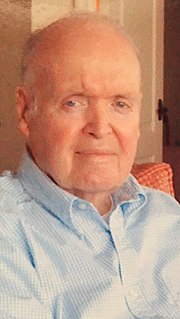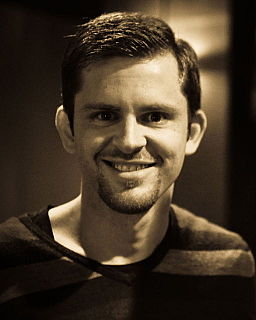Цитата Нельсона Манделы
Под этим он подразумевает, что вместо того, чтобы говорить, что вы «попробуете», вам нужно «сделать». И когда мы позволяем своему свету сиять, мы бессознательно даем разрешение другим людям делать то же самое. Когда мы освобождаемся от собственного страха, наше присутствие автоматически освобождает других.
Связанные цитаты
Мы все созданы для того, чтобы сиять, как дети. Мы родились, чтобы явить славу Божью, которая внутри нас. Это не только в некоторых из нас; это есть в каждом, и когда мы позволяем сиять своему собственному свету, мы бессознательно даем разрешение другим делать то же самое. Когда мы освобождаемся от собственного страха, наше присутствие автоматически освобождает других.
Нет ничего просветленного в том, чтобы сжиматься, чтобы другие люди не чувствовали себя неуверенно рядом с вами. Мы все созданы для того, чтобы сиять, как дети. Мы родились, чтобы явить славу Божью, которая внутри нас. Это не только в некоторых из нас; это есть в каждом, и когда мы позволяем сиять своему собственному свету, мы бессознательно даем разрешение другим делать то же самое. Когда мы освобождаемся от собственного страха, наше присутствие автоматически освобождает других.
Ты дитя божье, маленькие игры в этом мире не работают. Чтобы окружающие чувствовали мир, это не пример, чтобы сделать себя маленькими. Мы рождены, чтобы выражать славу Божью, которая живет в нас. Это не в некоторых из нас, это во всех нас. В то время как мы позволяем нашему свету сиять, мы бессознательно разрешаем другим делать то же самое. Когда мы освобождаемся от собственных страхов, просто наше присутствие может освободить других.
Вещи и люди предстают перед нами в соответствии со светом, который мы проливаем на них из собственного разума. Как бессознательно мы судим о других по свету, который в нас самих, осуждая или одобряя их по нашему собственному представлению о добре и зле, чести и бесчестии! Мы показываем своим суждением, что такое свет внутри нас.
Есть тишина, которая наилучшим образом соответствует нашим возможностям, когда мы научились слушать других. Мы можем овладеть искусством молчания, чтобы ясно слышать, что говорят другие. . . . Нам нужно отсечь искаженную статику наших собственных забот, чтобы отдать ее людям, которые хотят нашего тихого внимания.
Многие из нас живут из-за страха перед тем, что о нас подумают другие люди. Мы ждем, пока кто-нибудь даст нам разрешение, в котором будет сказано, что быть собой — это нормально. Не пытайтесь быть бесстрашным и не притворяйтесь, что на вас не действует страх. Просто постарайтесь не дать страху принимать решения за вас.
Я верю, что эти истории существуют, потому что нам иногда нужно создавать нереальных монстров и призраков, чтобы заменить все, чего мы боимся в нашей реальной жизни: родитель, который бьет кулаком вместо поцелуя, автомобильная авария, унесшая любимого человека, рак, который у нас есть. день обнаружить жизнь в наших собственных телах. Если бы такие ужасные происшествия были деяниями тьмы, с ними действительно было бы легче справиться. Но вместо того, чтобы быть темными, они имеют свой ужасный блеск. . . и ничто не сияет так ярко, как акты жестокости, которые мы иногда совершаем в наших собственных семьях.
Эмоциональная зависимость противоположна эмоциональной силе. Это означает необходимость иметь других, чтобы выжить, желать, чтобы другие «делали это за нас», и полагаться на других, чтобы они давали нам представление о себе, принимали решения и заботились о нас в финансовом отношении. Когда мы эмоционально зависимы, мы обращаемся к другим за нашим счастьем, нашей концепцией «я» и нашим эмоциональным благополучием. Такая уязвимость требует поиска и зависимости от внешней поддержки для чувства собственного достоинства.
Я убежден, что глубочайшее желание каждого из нас — освободиться от контролирующего влияния нашего собственного психического безумия или паттернов страха. Все остальное — презрение к обыденной жизни, потребность контролировать других, а не быть подконтрольной, тяга к материальным благам как к средству безопасности и защиты от ветров хаоса — это внешние подпорки, служащие заменителями настоящей битвы, который ведется внутри индивидуальной души.
Иисус освободил нас от религии. Иисус учил простым религиозным практикам, а не основным теориям. Единственные мысли, которые Иисус сказал нам полиции, были нашими собственными: наши собственные негативные мысли, наши собственные мысли о насилии, наши собственные ненавистные мысли, а не мысли других людей.
Эмпатия — это уважительное понимание того, что переживают другие. Вместо того, чтобы проявлять сочувствие, у нас часто возникает сильное желание дать совет или заверить, а также объяснить нашу собственную позицию или чувство. Эмпатия, однако, призывает нас очистить свой разум и слушать других всем своим существом.







































